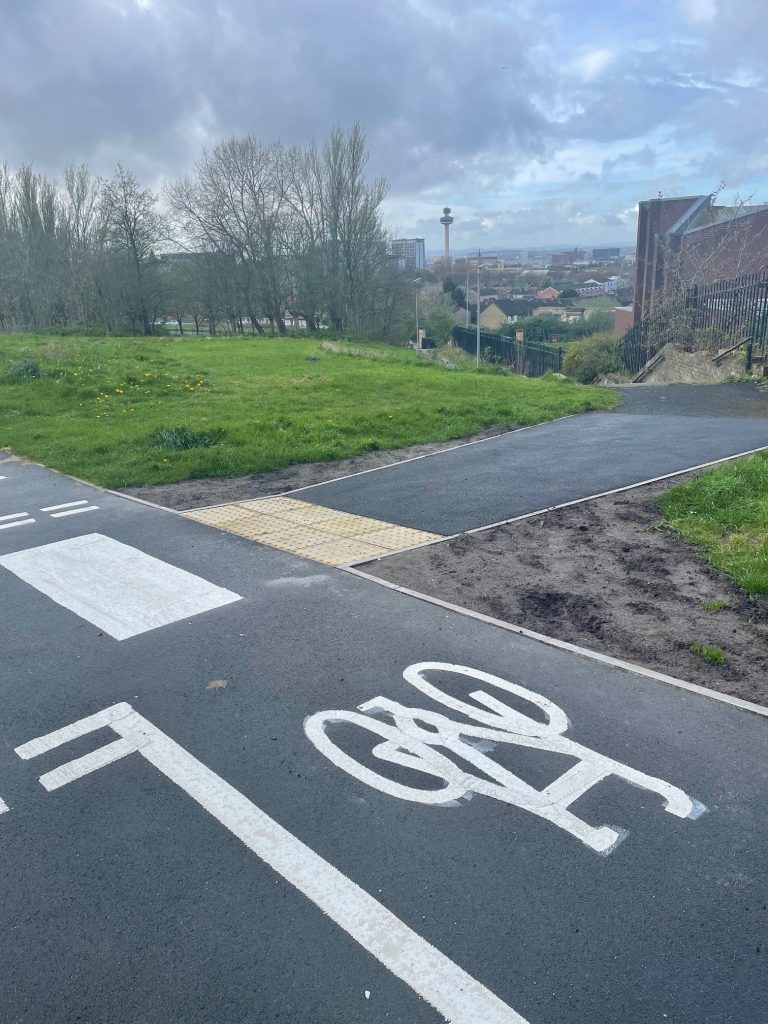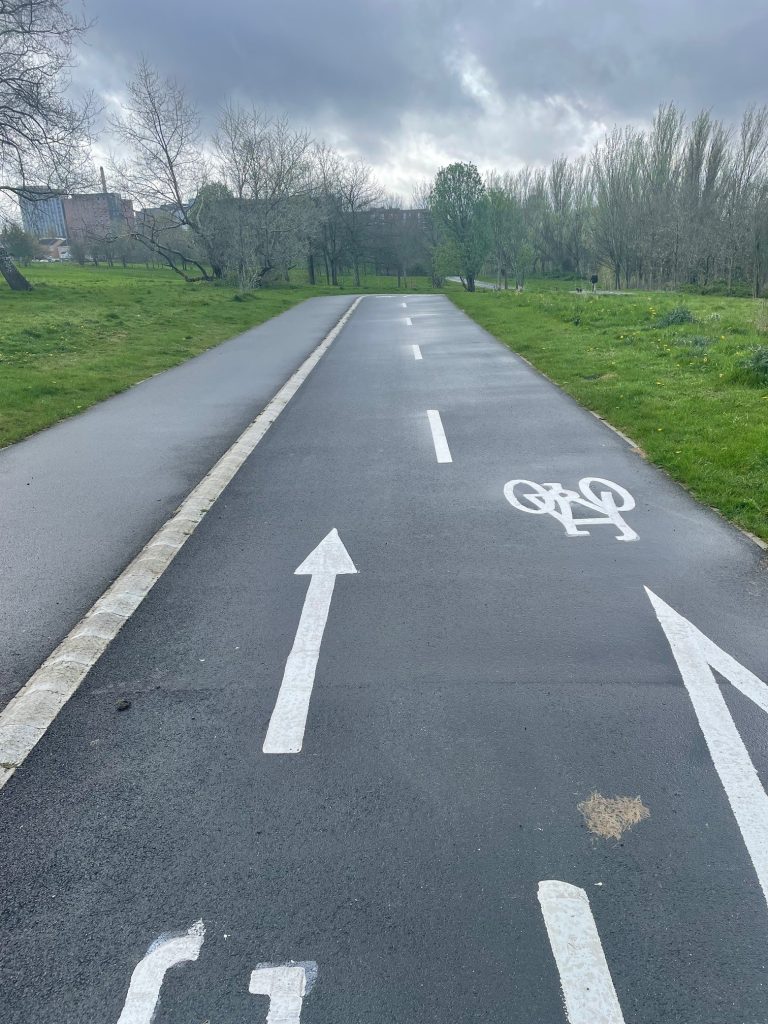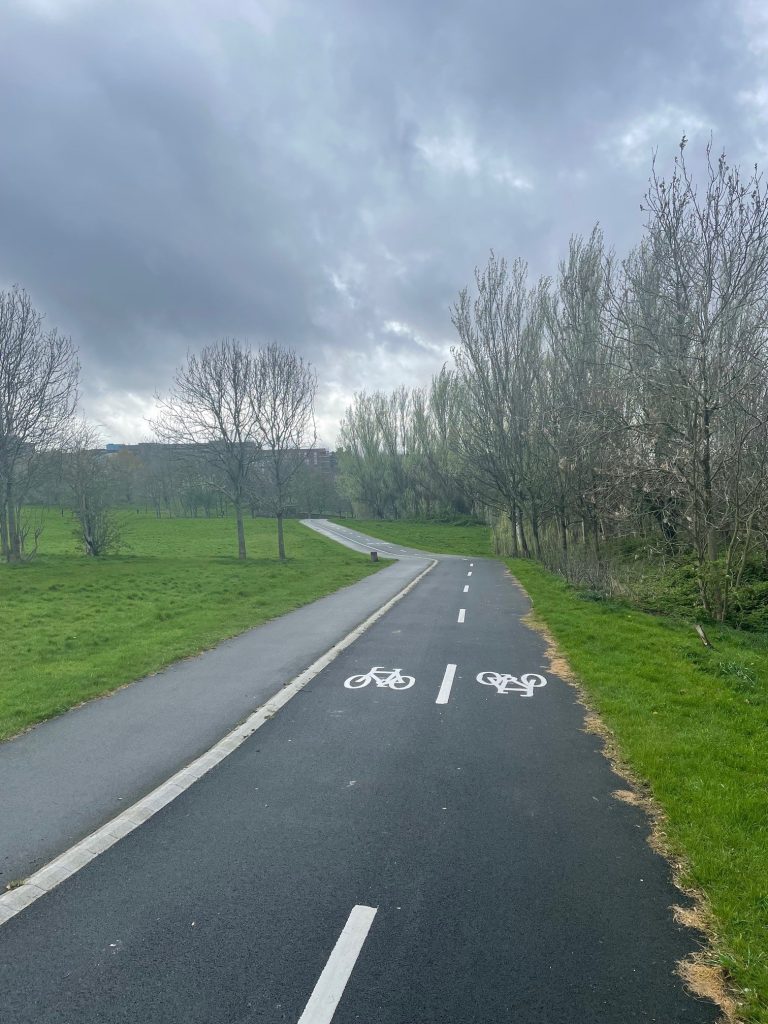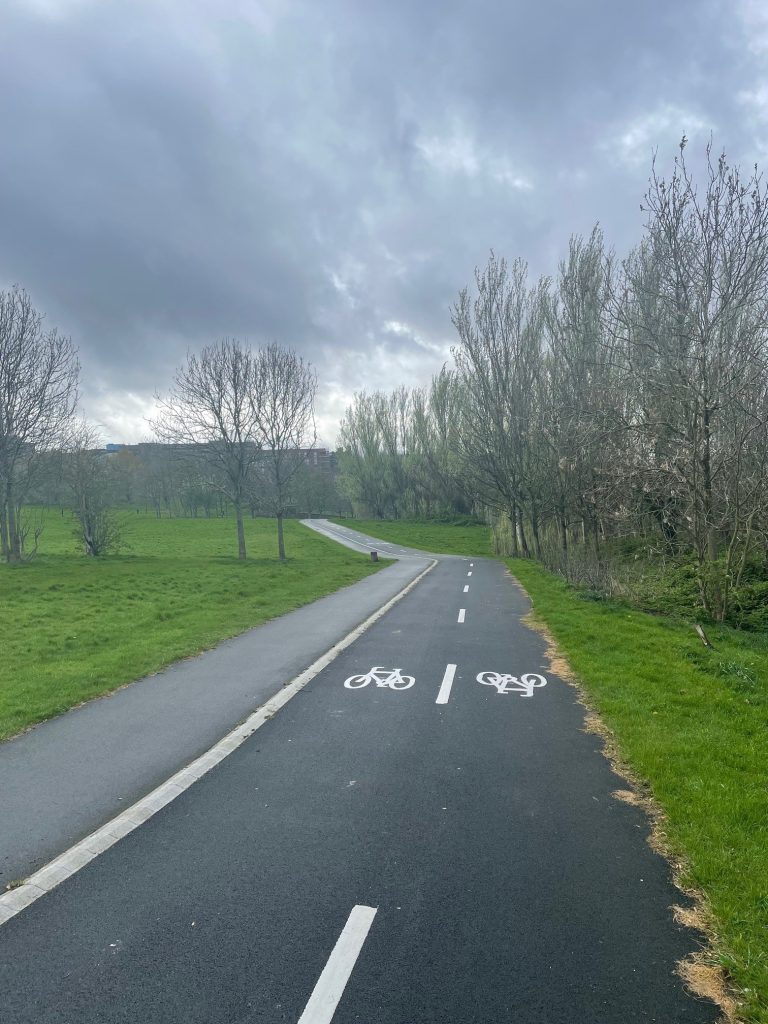Liverpool City Council (LCC) engaged in a comprehensive infrastructure enhancement project as part of the Highways Investment Programme (HIP) Framework 2023-2024. The Everton Park Cycleway improvement project, which started on January 25, 2023, aimed to transform various routes within Liverpool to promote active travel, primarily focusing on cycling and pedestrian infrastructure improvements. The project concluded on February 22, 2024.



The scheme, designated under the Liverpool City Council Active Travel Fund Trance 2, concentrated on three distinct routes, including Route 4, Route 6, and Route 7. Shaw Street, a critical segment falling within Route 4, underwent significant upgrades. The project’s scope encompassed various elements aimed at facilitating safe and convenient pedestrian and cycling access. These included:
- Installation of a new cycleway alongside the existing carriageway on Shaw Street, between William Henry Street and College Street North.
- Construction of a shared footway/cycleway through Everton Park, connecting to Village Street.
- Implementation of 450 meters of new ducting and drawpits for future park cycleway lighting.
- Removal of dead/decayed trees and trimming of others to accommodate the cycleway route.
- Amendments to existing footways and cycleways layout, including new bollards.
- Resurfacing of parts of Village Street.
- Redesign of the existing bus stop, incorporating new bus stop kerbs and Kellen Paving design.
- Construction of a new footway with PCC paving.
- Installation of new gullies and connections, upgrades to existing gullies, and a new 80-meter carrier drain with 3 manholes.
- Resurfacing of the existing carriageway (2,200m²) by planing out and relaying HRA to a designed 40mm depth, with additional depth due to the presence of setts.
- Renewal of the existing zebra crossing and installation of a new zebra crossing closer to the college.
- Upgrading and relocation of existing street lighting to incorporate the cycleway.
- Installation of new traffic signs and road markings to accommodate the new cycleways and revised carriageway layout
The project involved significant quantities of materials and construction elements, including:
- Excavation and recycling of topsoil, subsoil, and excavated materials.
- Importation of recycled materials from Dowhigh yard for use as MOT.
- PCC kerbing, including cycle demarcation blocks, edging kerb, various PCC kerb, and monolithic drainage channels.
- PCC and tactile paving for footway enhancements.
- Kellen Paving block for specific areas.
- Various asphalt materials for carriageway resurfacing, including AC20 dense bin binder, AC10 close surf 100/150, AC6 dense surf 100/150, HRA 35/14, SMA 6/10mm, and Superflex 10mm.
The project faced challenges related to busy road conditions, the presence of Liverpool Collegiate School, park pedestrian traffic, bus routes, traffic management, and the discovery of setts in the carriageway, necessitating additional construction measures. The comprehensive enhancements provided by the project, including the introduction of additional zebra crossings, surfacing works to the existing carriageway, and overall infrastructure upgrades, aimed to facilitate active travel and improve the overall urban landscape. The project was successfully completed within the allocated timeframe, with a total cost to the client amounting to £650,000.

